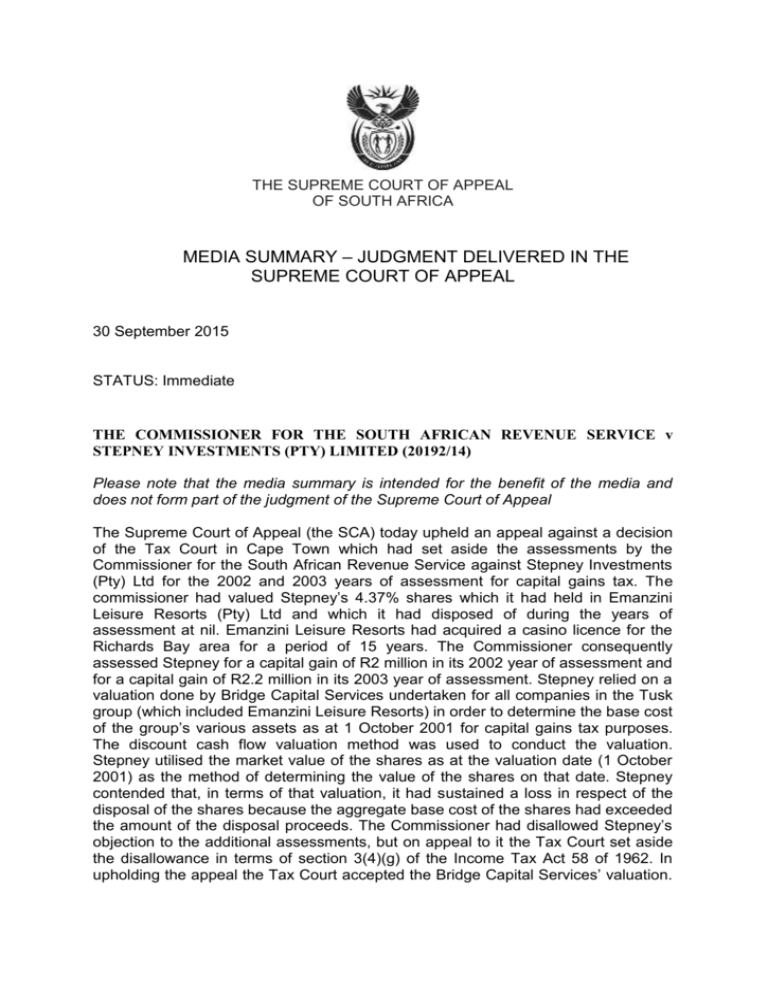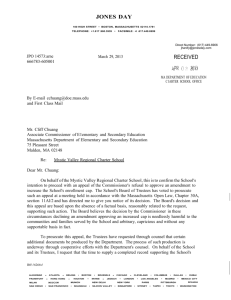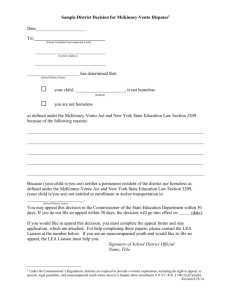Today, 18 May 2004, the Supreme Court of Appeal will hear
advertisement

THE SUPREME COURT OF APPEAL OF SOUTH AFRICA MEDIA SUMMARY – JUDGMENT DELIVERED IN THE SUPREME COURT OF APPEAL MEDIA SUMMARY – JUDGMENT DELIVERED IN COURT OF APPEAL 30 September 2015 STATUS: Immediate THE COMMISSIONER FOR THE SOUTH AFRICAN REVENUE SERVICE v STEPNEY INVESTMENTS (PTY) LIMITED (20192/14) Please note that the media summary is intended for the benefit of the media and does not form part of the judgment of the Supreme Court of Appeal The Supreme Court of Appeal (the SCA) today upheld an appeal against a decision of the Tax Court in Cape Town which had set aside the assessments by the Commissioner for the South African Revenue Service against Stepney Investments (Pty) Ltd for the 2002 and 2003 years of assessment for capital gains tax. The commissioner had valued Stepney’s 4.37% shares which it had held in Emanzini Leisure Resorts (Pty) Ltd and which it had disposed of during the years of assessment at nil. Emanzini Leisure Resorts had acquired a casino licence for the Richards Bay area for a period of 15 years. The Commissioner consequently assessed Stepney for a capital gain of R2 million in its 2002 year of assessment and for a capital gain of R2.2 million in its 2003 year of assessment. Stepney relied on a valuation done by Bridge Capital Services undertaken for all companies in the Tusk group (which included Emanzini Leisure Resorts) in order to determine the base cost of the group’s various assets as at 1 October 2001 for capital gains tax purposes. The discount cash flow valuation method was used to conduct the valuation. Stepney utilised the market value of the shares as at the valuation date (1 October 2001) as the method of determining the value of the shares on that date. Stepney contended that, in terms of that valuation, it had sustained a loss in respect of the disposal of the shares because the aggregate base cost of the shares had exceeded the amount of the disposal proceeds. The Commissioner had disallowed Stepney’s objection to the additional assessments, but on appeal to it the Tax Court set aside the disallowance in terms of section 3(4)(g) of the Income Tax Act 58 of 1962. In upholding the appeal the Tax Court accepted the Bridge Capital Services’ valuation. 2 The SCA held that the Tax Court had erred in doing so, finding that the valuation was fatally flawed in the following material respects: (a) The projected figures for the future free cash flows were unreasonable when compared to the actual figures which were available in 2004 when the valuation was conducted. The failure to have regard to the actual figures was wrong; (b) the wrong date was utilised in the valuation; (c) the projected tax calculations did not accord with the statutory rates and was understated; (d) the projected capital expenditure was also unreliable and unrealistic since it failed to take into account at all the costs of erecting a temporary casino while the litigation in respect of the location of the premises of the permanent casino was being finalised; (e) the terminal value was wrongly calculated on the basis that revenue would have flowed into perpetuity, whereas the casino licence would have expired after 15 years. The loss of exclusivity after 15 years was not taken into account; (f) lastly, the discount rate was not properly applied as the same rate was used for all the entities in the Tusk group – the other entities were established casinos, whereas the one in the present instance at Richards Bay was a greenfields operation. Certain obvious risk factors such as the unresolved litigation and the increased cost of construction of a temporary casino had also been disregarded. The SCA thus upheld the appeal with costs. It substituted the Tax Court’s order with one in terms whereof Stephney’s appeal was upheld and the matter remitted to the Commissioner in terms of section 83(13)(a)(iii) of the Income Tax Act for further investigation and assessment. The SCA held that Stepney was entitled to its costs in the Tax Court in terms of section 130(1)(a) of the Tax Administration Act 28 of 2011. It held that the grounds of assessment was unreasonable in two respects, namely the Commissioner’s incorrect utilisation of the net asset value method and the Commissioner’s valuation of the shares as nil. -- ends -- 2








